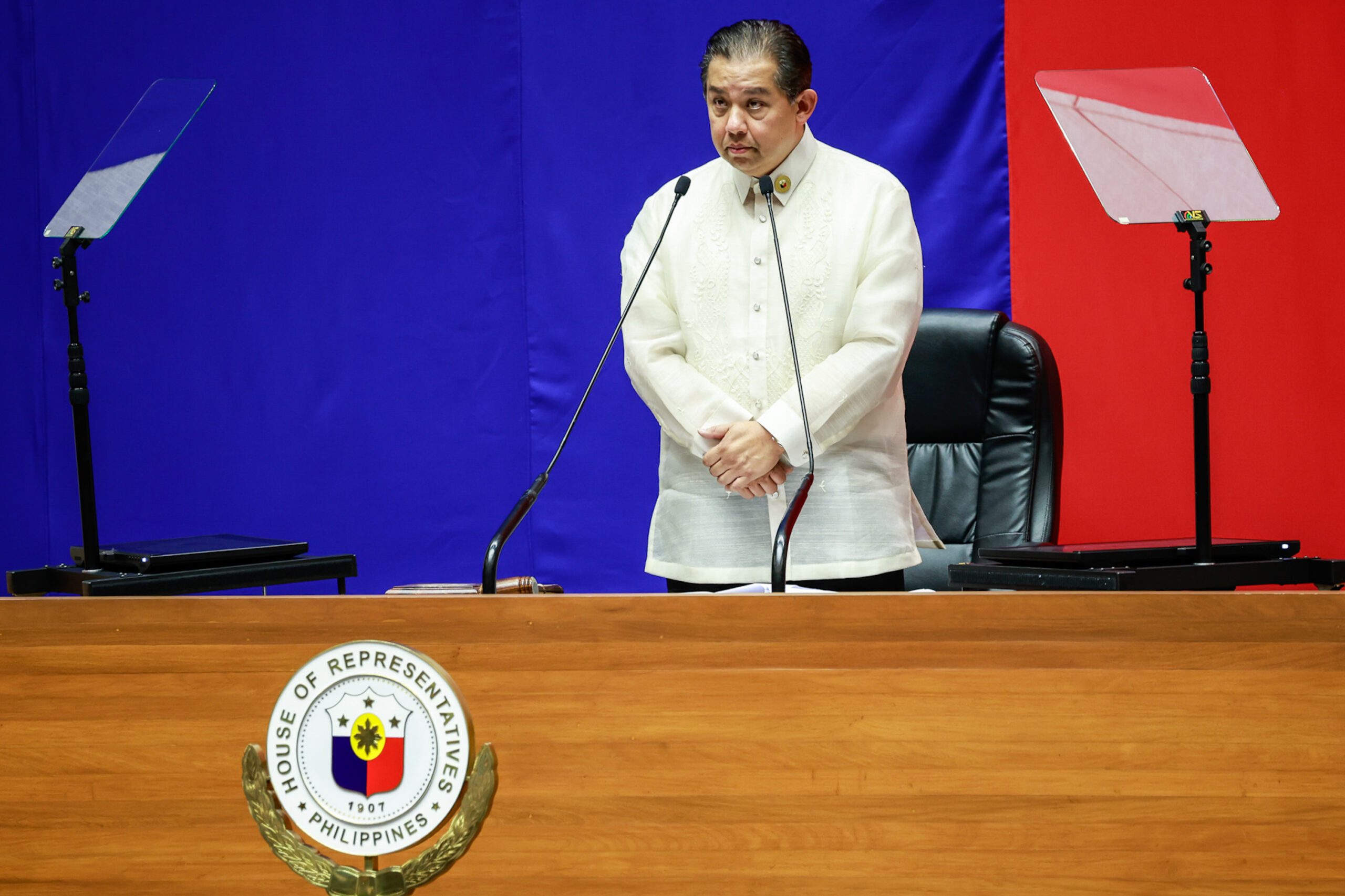This is AI generated summarization, which may have errors. For context, always refer to the full article.
The first five bills indexed by the House, ranging from health care to education, come from Speaker Romualdez’s office, as expected
As new House lawmakers started their three-year term on Monday, June 30, legislators or their staff queued at the Batasang Pambansa to be among the early bill filers of the 20th Congress, which will convene later this month.
The first bills filed, as expected, came from Speaker Martin Romualdez, and the areas covered food sufficiency, health care, education, and his parochial interest — the development of his home region.
The act of filing on the first day of a lawmaker’s term is often an optics play; it’s the legislator’s way of sending a message on what issues he or she will prioritize. The bills that the Speaker files usually are the ones that get fast-tracked or approved during his term.
In the 19th Congress, the first 25 numbered bills were from the Speaker’s office: 22 hurdled the House, and eight are now laws.
Below are the first five bills he filed in the new Congress, sharing the primary authorship with Tingog lawmakers Andrew Julian Romualdez (also his son who is on his first term) and Jude Acidre.
House Bill No. 1: Rice Industry and Consumer Empowerment Act
- Restores key regulatory powers that were removed from the National Food Authority after the passage of the rice tariffication law
- Authorizes the NFA to seize hoarded rice or grains, and compel grain warehouses and storage facilities to register and obtain license from the agency
House Bill No. 2: Measure amending the Universal Health Care Act to strengthen the health care system
- Exempts migrant workers from paying premiums to the Philippine Health Insurance Corporation (PhilHealth); national government will shoulder half of the premium, while employers shoulder the other half
- Provides that unused premium subsidies for indirect contributors must be used exclusively to increase benefits or lower future premium subsidies
- Adjusts premium rates based on actuarial studies and assessments, subject to Congress’ approval, instead of a fixed annual schedule already written in the law
- Establishes a Universal Health Care Coordinating Council to ensure that the law is swiftly implemented
House Bill No. 3: Philippine Centers for Disease Prevention and Control (CDC) Act
- Creates the Philippine CDC, under the supervision of the Department of Health, to streamline disease prevention efforts, as current initiatives within various departments of DOH are “fragmented, under-resources, and challenged by institutional constraints”
House Bill No. 4: Private Basic Education Vouchers Assistance Act
- Repeals the decades-old law called Expanded Government Assistance to Students and Teachers in Private Education (E-GASTPE)
- Provides criteria for voucher assistance for students and schools, and empowers learners to select their preferred schools from the government registry
- Mandates the Department of Education (DepEd) to have a “quality assurance” system, in the wake of criticisms about the lack of robust mechanisms to monitor how E-GASTPE funds are being utilized by private schools
- Creates a Bureau of Private Education within DepEd for concerns involving private schools
- Establishes a teachers’ salary subsidy fund for private basic education school teachers amid the reality that educators leave for public schools due to better pay
House Bill No. 5: Eastern Visayas Development Authority (EVDA) Act
- Crafts the Eastern Visayas Development Master Plan
- Transfers funds from the rehabilitation of Eastern Visayas after the onslaught of Super Typhoon Yolanda in 2013 to the EVDA
- Establishes a database on the region for planning and decision-making
- Recommends to the National Economic and Development Authority the approval of programs and projects
– Rappler.com
